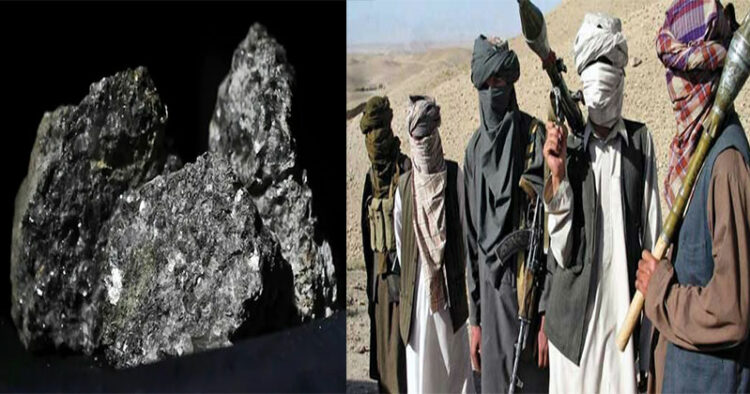After the news that huge deposits of Lithium have been found in Jammu’s Raesi, PAFF (People’s Anti-Fascist Front- a terror front backed by Jaish-e-Muhammad (JeM) has issued a threat against the mining of deposits. The PAFF has said that it won’t allow Indian firms to mine the deposits.
In a statement, the terror group has warned that under no circumstances it would allow the “exploitation” and “theft” of resources of Jammu & Kashmir.”These resources belong to the people and should be and will be used for the betterment of the people of Jammu & Kashmir,” it said.
It has also warned Indian companies, saying it will attack the firms that dare to be in the “troubled waters” of Jammu & Kashmir.
PAFF has been issuing regular threats Indian security forces, political leaders, civilians working in Jammu & Kashmir from other States. Sources reveal that the threat letter is posted from Muzaffarabad city of POJK. The Union Ministry of Mines on February 9 said that it has discovered 5.9 million tonnes of Lithium resources in the Salal-Haimana area of Reasi District of Jammu & Kashmir.
It is to be noted that, this is the first major Lithium reserve that has been found in India.
Last year, a survey led by the Atomic Minerals Directorate for Exploration and Research showed the presence of lithium resources of 1,600 tonnes in the Marlagalla area of Karnataka’s Mandya district.
Lithium is a rare mineral and an essential component in rechargeable batteries used in electric vehicles and electronic gadgets like smartphones and laptops.
Importantly, India has set a target to expand EV penetration by 30 per cent by 2030, which is presently, less than 1 per cent of all new cars sold in the nation are electric vehicles. Earlier, as per the Ministry of Mines, India used to import lithium from Argentina and Australia.
Here it is worth mentioning that the Indian automotive market will be the third largest by 2030 in terms of volume. The country has projected an ambitious target of achieving 100 per cent electrification by 2030.
Lithium, the lightest metal in the periodic table, is attracting a great deal of attention due to its critical role in the production of batteries for electric vehicles (EVs) and consumer electronics.
The discovery of significant reserves of Lithium in Jammu & Kashmir has the potential to be a game-changer for the country, transforming the nation into a major player in the global lithium market and propelling its transition to a low-carbon economy. The increasing demand for Lithium batteries has led to a growing demand for Lithium.
The global market for Lithium is estimated to be worth $30 billion by 2025, and the demand is only set to increase as the shift towards EVs and renewable energy sources gathers pace. The discovery of Lithium in India presents a significant opportunity for the country to tap into this growing market, reduce its dependence on imports, and boost its economy.
One of the major challenges faced by India’s energy sector is the lack of a domestic supply of Lithium. Currently, India relies heavily on imports of Lithium from countries such as Australia, Chile, and Argentina, which are leading producers of the metal. The discovery of Lithium in India would reduce the country’s dependence on imports and increase its bargaining power in the global market, providing a much-needed boost to the economy.
The discovery of this new lithium reserve in Jammu & Kashmir is an exciting development for India’s economy. It has the potential to reduce the country’s dependence on imports of this mineral, become a major player in the global lithium market, and stimulate economic growth in one of the country’s most underdeveloped regions.
The Indian Government is taking a responsible and strategic approach to developing this reserve. It is working to ensure that it has a positive impact on both the local and national economies.



















Comments